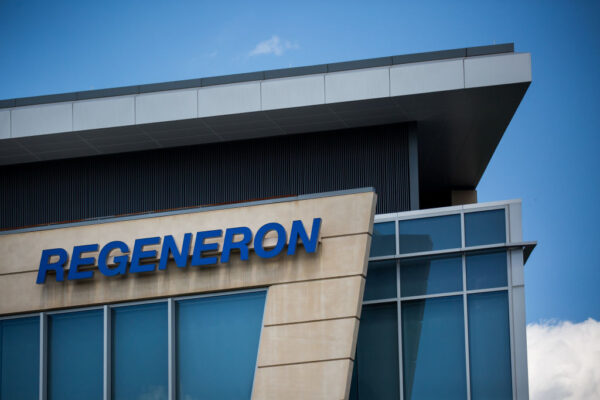FDA Rejection Delays Regeneron From Competing With J&J, Pfizer in Multiple Myeloma
August 23, 2024
Source: drugdu
 293
293
Regeneron Pharmaceuticals said the FDA cited no approvability concerns for its multiple myeloma drug, linvoseltamab, other than previously identified issues with a contract manufacturer. While linvoseltamab trails bispecific antibodies currently marketed by Johnson & Johnson and Pfizer, if approved, it could bring patients an earlier treatment option.
By Frank Vinluan on August 21, 2024

Regeneron Pharmaceuticals already lags companies that have launched new multiple myeloma drugs, and it will have to wait a little bit longer to join them. The FDA turned down Regeneron’s application for its drug candidate, but not for any issues with the therapy itself. The regulator cited problems with the treatment’s third party manufacturer.
The FDA rejection for the drug, linvoseltamab, is not a surprise. Regeneron foreshadowed that decision earlier this month during its conference call to discuss second quarter 2024 financial results, disclosing that that the FDA flagged unresolved findings with the contract manufacturer. Those problems centered on another company’s drug candidate made at the same site, and a reinspection of this facility is needed before the FDA can approve linvoseltamab, CEO Leonard Schleifer said, speaking during the Aug. 1 call. Late Tuesday, Regeneron confirmed receipt of the FDA complete response letter.
Regeneron said inspection findings at the unnamed contract manufacturer are the only approvability issues for its drug. The Tarrytown, New York-based company said this contractor believes the findings have been resolved. An FDA reinspection is expected in the coming months. Meanwhile, Regeneron said European Medicines Agency review of linvoseltamab is ongoing.
Linvoseltamab is a bispecific antibody designed to hit to two targets. On multiple myeloma cells, it binds to the cancer protein BCMA. On a patient’s T cells, the drug binds to CD3. Simultaneously binding to both targets activates a T cell to kill the cancer cell. A pivotal Phase 1/2 study enrolling patients with advanced cases of multiple myeloma showed 46% of patients achieved a complete response or better after a median 11 months of follow up; 62% achieved a very good partial response or better.
Those responses happened quickly, reported in patients after a median of one month of treatment. Furthermore, these responses have been durable. Median duration of response and median overall response had not yet been reached when Regeneron presented the pivotal study results in April during the annual meeting of the American Association for Cancer Research. Those responses continued and even deepened, according to data from a median 14 months of follow up that were presented in June during the European Hematology Association annual meeting.
While there are many treatments available for multiple myeloma, the frequent relapse in this type of blood cancer points to the need for new therapies as patients cycle through the currently available treatment options. Johnson & Johnson’s BCMA-targeting bispecific antibody, Tecvayli, won accelerated FDA approval in 2022 as a fifth-line multiple myeloma treatment. After step-up dosing, this injectable drug was to be administered once weekly, per the original decision. But in February, the FDA approved biweekly dosing.
Pfizer’s bispecific antibody for this multiple myeloma is Elrexfio, which won its accelerated approval about a year ago as a fifth-line treatment. After step-up dosing, this therapy is administered every other week.
Regeneron’s linvoseltamab is every other week after step-up dosing. But this therapy could have an edge as an earlier line of treatment. The biologics application is seeking approval for treating multiple myeloma that has advanced after at least three earlier lines of therapy.
Photo: Michael Nagle/Bloomberg, via Getty Images
By editorRead more on
- The first subject has been dosed in the Phase I clinical trial of Yuandong Bio’s EP-0210 monoclonal antibody injection. February 10, 2026
- Clinical trial of recombinant herpes zoster ZFA01 adjuvant vaccine (CHO cells) approved February 10, 2026
- Heyu Pharmaceuticals’ FGFR4 inhibitor ipagoglottinib has received Fast Track designation from the FDA for the treatment of advanced HCC patients with FGF19 overexpression who have been treated with ICIs and mTKIs. February 10, 2026
- Sanofi’s “Rilzabrutinib” has been recognized as a Breakthrough Therapy in the United States and an Orphan Drug in Japan, and has applied for marketing approval in China. February 10, 2026
- Domestically developed blockbuster ADC approved for new indication February 10, 2026
your submission has already been received.
OK
Subscribe
Please enter a valid Email address!
Submit
The most relevant industry news & insight will be sent to you every two weeks.



